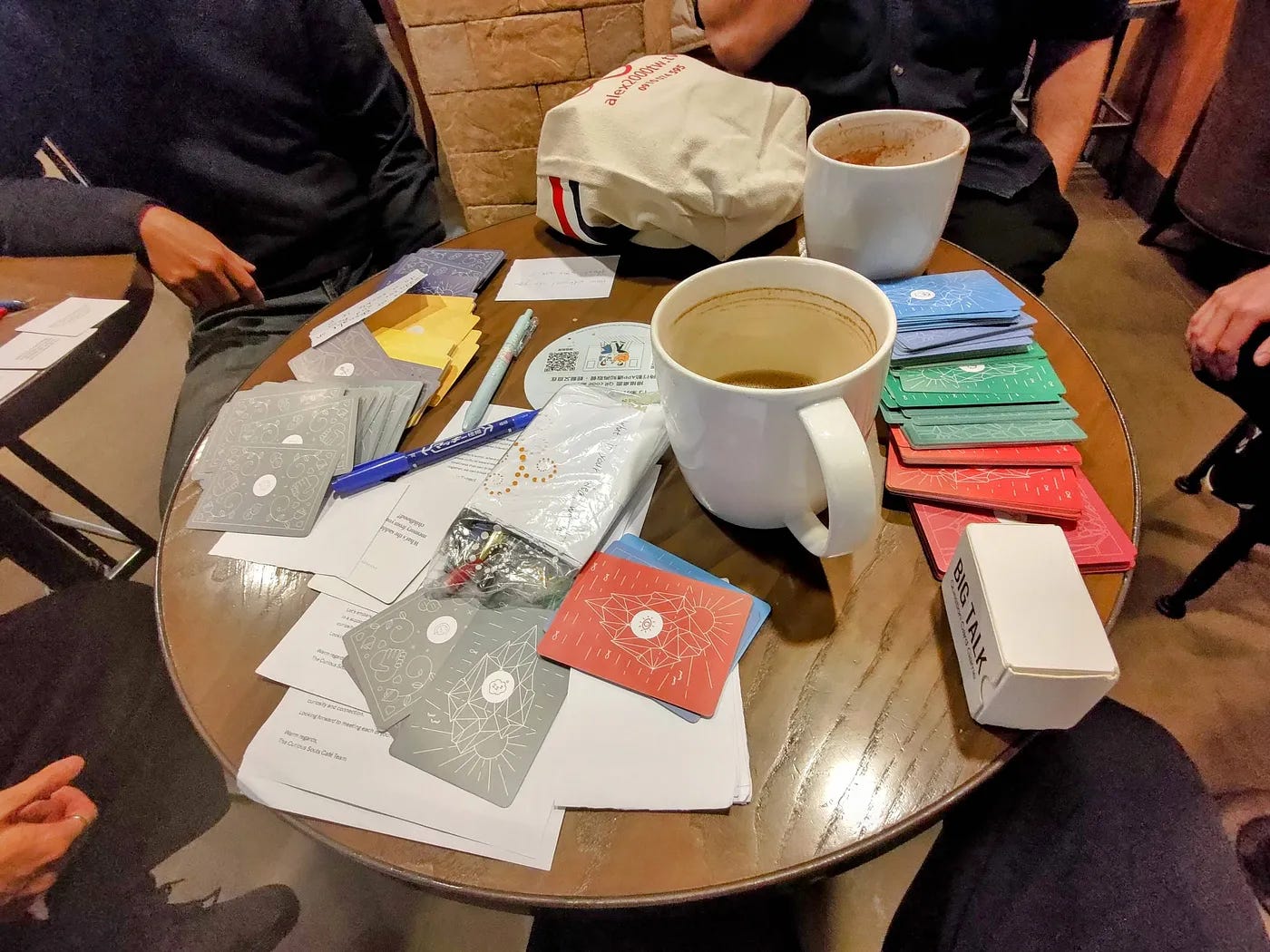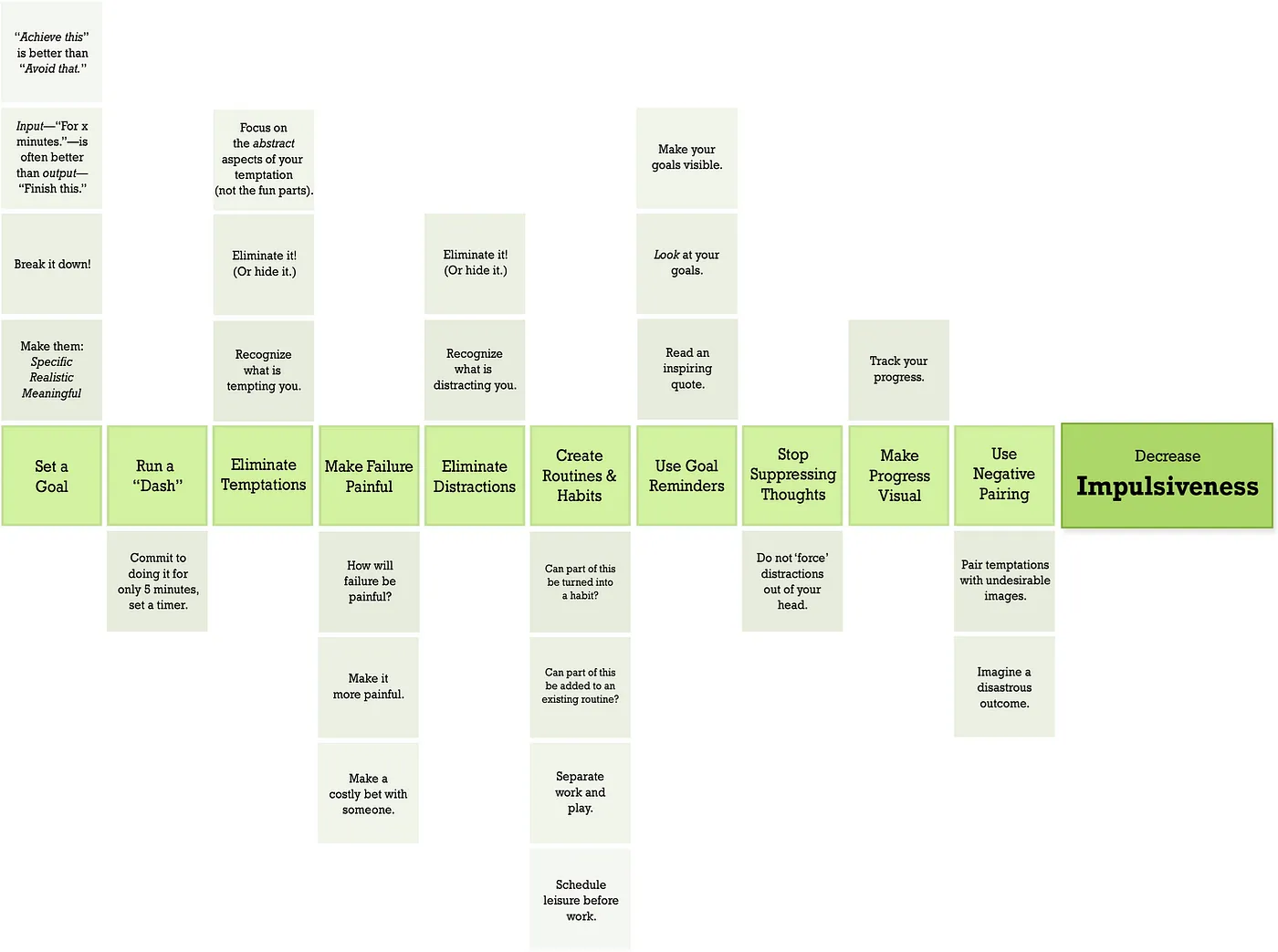On Addiction and Happiest Memories: Curious Souls Meet Again in Taipei
On December 8th, 2024, the second Curious Souls Café event in Taipei brought together a diverse group of individuals for an evening of meaningful connection and thought-provoking conversation. Unlike traditional networking events, this gathering was carefully curated to foster deep, authentic exchanges. With seven enthusiastic participants and a semi-structured format, the night was filled with warmth, curiosity, and a shared desire for enriching experiences.
First Round: Meaningful Icebreaker Cards
The event began with a unique icebreaker activity. Participants selected three cards, each representing a different category, and chose one question to answer and share with the group. The questions, carefully curated by the facilitator, ranged from lighthearted to reflective, ensuring a balance of fun and depth.
1. Unveiling Guilty Pleasures
“What is your guilty pleasure?”
The first question sparked a lively discussion. Responses included indulging in chocolate, binge-watching TV series, and watching bad horror films.
One participant admitted to overindulging in chocolate, especially during stressful times, highlighting the internal struggle between enjoyment and self-control. Another participant rejected the idea of labeling pleasures as “guilty,” advocating for self-acceptance and moderation instead of judgment.
This conversation underscored the importance of:
Self-Acceptance: Openly discussing guilty pleasures can reduce stigma and foster self-compassion.
Moderation: Rather than eliminating indulgences, focusing on balance and understanding the motivations behind them can lead to healthier habits.
2. Confronting Beliefs in the Face of Contradictory Evidence
“Describe a belief that you still hold tight even if someone showed you evidence to the contrary,” and “What do you believe in despite having no proof of it?”
These questions prompted deep reflection. Since the two questions are similar, some participants tackled them together.
One participant shared his evolving belief about travel, explaining that while it offers temporary escape, it doesn’t solve personal problems. Another participant admitted to prioritizing social engagement over solitude, despite psychological advice suggesting the benefits of alone time.
In contrast, some participants expressed a willingness to adapt their beliefs based on scientific evidence, highlighting the tension between personal experience and objective reasoning.
Additional takeaways outside of this conversation that are worth mentioning:
Intellectual Humility: Questioning our beliefs fosters growth and understanding.
Empathy: Recognizing how personal experiences shape beliefs can help bridge ideological divides.
3. Confronting Fears: A Shared Belief
“What is something you think everyone should do at least once in their lives?”
The third question revealed a shared belief in the transformative power of stepping outside one’s comfort zone.
Participants suggested activities like traveling, skydiving, bungee jumping, and taking a gap year. These experiences, they agreed, can build resilience, expand perspectives, and foster personal growth.
4. Finding Meaning in Work
“Other than the financial rewards, what else do you gain from your current work?”
The fourth question explored the diverse motivations behind career choices.
An architect shared his passion for his field, while a freelance translator emphasized the freedom of her work arrangement. A software engineer found fulfillment in creating products that benefit others, and a product manager highlighted the excitement of working in a fast-paced startup environment.
The discussion also touched on the balance between personal fulfillment and external validation, emphasizing the importance of aligning work with one’s values and aspirations.
5. Dealing with Money
“In what ways are you bad with money?”
The fifth question revealed common challenges like overthinking finances, chasing experiences, and struggling with moderation.
For our facilitator, he felt that the system itself makes people want more and more experiences, which is why we are “bad with money”. He suggested mindfulness as a tool for better money management, encouraging participants to appreciate what they have rather than constantly seeking more.
6. Exploring Excellence: Unique Abilities
“What do you do better than anyone else you know?”
The final question showcased participants’ diverse talents, from drawing and cooking dishes like “mapo tofu” to public speaking and debugging complex software systems.
The responses were marked by humility and a genuine appreciation for their skills, highlighting the joy of creation and mastery.
Second Round: Bring Your Own Questions
After the icebreaker round, participants wrote down their own questions, inspired by the cards, their dreams, or recent experiences. The group voted on which questions to explore, leading to a few focused discussions.
1. Exploring Happiness and Simple Pleasures
“What is the best gift you’ve ever received or what is your most recent happy memory?”
The first question from the second round elicited heartfelt responses:
A participant shared a meaningful dream during a meditation retreat, despite the challenge of embracing silence during the experience.
Another recounted the thrill of nearly catching a home run ball at a baseball game hit by a top baseball player.
Others highlighted the joy of reconnecting with friends and appreciating nature’s beauty, such as the patterns in the water or sunlight filtered through trees.
On appreciating nature, the group also observed:
The contrast between Eastern and Western art traditions. Eastern art often emphasizes harmony with nature, while Western art, particularly before Romanticism, was more focused on religious themes.
How modern culture can tend toward a “human versus nature” or “conquering” of nature, rather than “human in harmony with nature”.
Taoism, as our facilitator brought up, originated in China thousands of years ago and already emphasizes the interconnectedness between humans and nature.
The beautiful Japanese movie, “Perfect Days,” was also brought up. It depicts a man who works as a toilet cleaner, but finds his greatest pleasure in observing nature. The key is to pay attention to the beauty around us, rather than constantly chasing something big or exciting.
The conversation emphasized the importance of mindfulness (observe feelings without aversion or craving) and finding happiness in simple, everyday moments like nature.
2. Tackling Addiction in a Modern World
“What’s your thought on addiction and how do you tackle it?”
The second and the most-voted question from the second round sparked a deep and engaging discussion.
Participants shared experiences with sugar addiction, chain smoking, emotional eating, and social media dependency. Key insights included:
Addiction as a Coping Mechanism: Many addictions stem from underlying emotional or psychological issues.
The Role of Environment: Changing surroundings can help break addictive habits, but maintaining progress requires addressing root causes.
Mindfulness and Retraining Habits: Practices like taste bud retraining and mindfulness can help reduce cravings and build healthier habits.
Further discussions from the group:
Metabolic and Psychological Aspects: The group recognized sugar’s metabolically addictive nature. They also highlighted the problem of processed sugar and its prevalence in the modern diet, emphasizing the role of daily habits and mindful consumption.
Taste Bud Training: One participant changed his taste preferences after relocating from the U.S. to Taiwan, where food contains less sugar. The discussion also included how dietary habits and perceptions of “normal” food can shift with a change in location.
Vaping as a tool for quitting: Vaping could be a way to slowly reduce nicotine intake and quit smoking.
The facilitator ended this part of the discussion with the therapeutic approach of reframing, and the concept of “inner child,” suggesting that addictive behaviors may be linked to unmet childhood needs or traumas.
3. The Challenge of Upholding Ethics
“How ethical do you think you are?”
There wasn’t enough time to go through the remaining question, which was challenging, according to several participants. However, it is included here because sometimes certain questions may not have an answer anyway.
Reflection on 2024: Extending Happy Moments
As the event concluded, the facilitator reflected on the year and shared his afterthoughts in our regional LINE group, noting that true richness lies in life’s fleeting moments rather than major milestones. One participant’s story about briefly touching a home run ball served as a reminder to cherish and expand these moments of joy.
The discussion also touched on Daniel Kahneman’s concept of the “remembering self” and the importance of mindfulness practices like gratitude journaling to counter negativity bias.
Afterthoughts and Tools for Growth
The facilitator shared a New Year’s resolution planning guide, “8760 Hours” by Alex Vermeer, which offers tools for setting and achieving goals. A helpful tip from the guide’s “How to Get Motivated” poster is highlighted: decreasing impulsiveness to gain better control over addictive behaviors.
This episode of Curious Souls Café is more than just an event — it’s a space for open, authentic communication. The diverse perspectives shared throughout the evening reminded us of the power of meaningful connection and the importance of embracing new experiences.
According to the feedback, the event left the participants feeling inspired and grateful for the opportunity to connect with such a thoughtful and engaging group.







